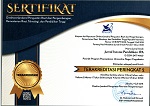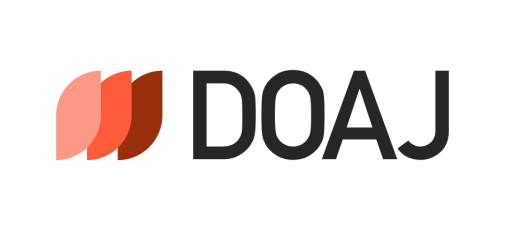Pengembangan Pembelajaran Ekonomi Berbasis Nilai Pancasila dan Nilai Budaya Lokal
Abstract
Keywords
Full Text:
PDFReferences
Adams, E. C. (2019). Economics and the civic mission of social studies education: Two critiques of neoclassicism. Citizenship, Social and Economics Education, 18(1), 16–32.
https://doi.org/10.1177/2047173419841915
Agussalim, Widjaja, S. U. M., Haryono, A., & Wahyono, H. (2021). Pancasila Economic Character Literacy Program for High
School Students. International Journal of Instruction, 14(1), 235–252. https://doi.org/10.29333/iji.2021.14114a
Ajzen, I., Joyce, N., Sheikh, S., & Cote, N. G. (2011). Knowledge and the prediction of behavior: The role of information accuracy in the theory of planned behavior. Basic and Applied Social Psychology, 33(2),
–117. https://doi.org/10.1080/01973533.2011.568834
Akbar, & Sriwiyana. (2011). Pengembangan Kurikulum dan Pembelajaran Ilmu Pengetahuan Sosial.
Tiara Annisa.Albarracin, D., Johnson, B. T., & Zanna, M. P. (2014). The Handbook of Attitudes (1st ed.). Psychology Press. https://doi.org/
https://doi.org/10.4324/9781410612823
Amri, F., Djatmika, E. T., Wahyono, H., & Widjaja, S. U. M. (2020). The effect of using simulation on developing students’ character education in learning economics. International Journal of Instruction,
(4), 375–392. https://doi.org/10.29333/iji.2020.13424a
Astaman Putra, N., Wahyono, H., & Wardoyo, C. (2016). Internalisasi Nilai-Nilai Pendidikan Ekonomi Keluarga Suku Selayar. Jurnal Pendidikan: Teori, Penelitian, Dan Pengembangan, 1(11), 2189–2193.
Bauman, Y., & Rose, E. (2011). Selection or indoctrination: Why do economics students donate less than the rest? Journal of Economic Behavior and Organization, 79(3), 318–327. https://doi.org/10.1016/j.
jebo.2011.02.010
Booker, J. D., Raines, M., & Swift, K. . (2001). Designing Capable and Reliable Products. Designing Capable and Reliable Products,
https://doi.org/10.1016/b978-0-7506-5076-2.x5000-4
Boylan, M. (2015). Learning Economics : A Cautionary Tale Author ( s ): Michael Boylan Published by : Wiley Stable URL https://www.jstor.org/stable/43653980 Learning Economics : A Cautionary Tale. 30(1), 234–239.
Depdiknas. (2008). Panduan Pengembangan Bahan Ajar. Direktorat Pembinaan SMA, Dirjen Mandikdasmen, Depdiknas.
Dulnuan, E. D. (2020). Nature-Culture Interaction at the Rice Terraces of Ifugao Province, Philippines. Journal of World Heritage Studies, October. https://doi.org/10.15068/00161533
Etzioni, A. (2015). The Moral Effects of Economic Published by : Wiley Stable URL : https://www.jstor.org/stable/43653979 The Moral
Effects of Economic Teaching1. 30(1), 228–233.
Faiz, A., & Soleh, B. (2021). Implementasi pendidikan karakter berbasis kearifan lokal. JINoP (Jurnal Inovasi Pembelajaran), 7(1), 68–77. https://doi.org/10.22219/jinop.v7i1.14250
Faravelli, M. (2007). How context matters: A survey based experiment on distributive justice. Journal of Public Economics, 91(7–8), 1399–1422. https://doi.org/10.1016/j.jpubeco.2007.01.004
Fauzi. (2018). Nilai Budaya Lokal Di Era Millenial. Insania, 23(1), 51–65.
Gasper, D. (2008). From ‘ Hume ’ S Law ’ To Problem- and Policy-Analysis for Human Development. Review of Political Economy.
Hasiym. (2020). Mengkonstruksi Nilai-Nilai Budaya Lokal Masyarakat Ternate Melalui Pembelajaran Muatan Lokal. Jurnal Geocivic, 3(April), 266–273.
Herrington, J., McKenney, S., Reeves, T., & Oliver, R. (2007). Design-based research and doctoral students: Guidelines for preparing a dissertation proposal. World Conference on Educational Multimedia, Hypermedia and Telecommunications, 2007(2007), 4089–4097. http://researchrepository.murdoch.edu.au/6762/%5Cnpapers3://
publication/uuid/373E7103-6768-447CA4DB-C8E1712589A9
Ilyas, M., & Tahir, T. (2015). The Implementation of Pancasila Economic System in Economic Learning At Faculty of Economics State University of Makassar. IOSR Journal of Economics and Finance Ver. III, 6(6),
–5933. https://doi.org/10.9790/5933-06636669
Inayati, R., Handayani, S., Kustiandi, J., Haryono, A., Wahyono, H., & . S. (2018). The Analysis of the Difficulty in Learning Economics
Subject Experienced By Students of Favored State Senior High Schools in City of Malang. KnE Social Sciences, 3(3), 195. https://doi.org/10.18502/kss.v3i3.1884
Induk, D. (2010). Pembangunan Karakter Bangsa Tahun 2010-2025. Pemerintah Republik Indonesia.
Ismail, M., Santosa, D. B., & Yustika, A. E. (2014). Sistem Ekonomi Indonesia Tafsiran Pancasila dan UUD 1945 (N. I. Sallama (ed.); Pertama). Erlangga.
Jaelani, A. (2016). Economic and social thought. Journal of Economic and Social Thought, 3(2), 241–251. https://e-
resources.perpusnas.go.id:2350
DOI: http://dx.doi.org/10.17977/um019v8i2p179-190
Refbacks
- There are currently no refbacks.
Copyright (c) 2023 Jurnal Ilmiah Pendidikan Pancasila dan Kewarganegaraan

This work is licensed under a Creative Commons Attribution 4.0 International License.
View My Stats











